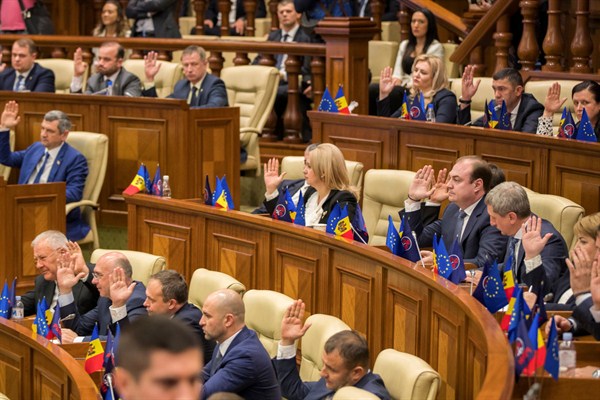In mid-November, a vote of no confidence ousted the government of Moldovan Prime Minister Maia Sandu, who was subsequently replaced by Ion Chicu with the support of the Party of Socialists of the Republic of Moldova, or PSRM. Until her ouster, Sandu’s ACUM bloc had governed in coalition with the Socialists, but their alliance had been a fragile one and its demise surprised few observers. In an email interview, Cristina Gherasimov—a research fellow at the Robert Bosch Center for Central and Eastern Europe, Russia and Central Asia at the German Council on Foreign Relations, and an academy associate in the Russia and Eurasia Program at Chatham House—explains what finally did in the ACUM-Socialists coalition, what to expect from the new government, and why it is misleading to view the political divisions in Chisinau, Moldova’s capital, exclusively through the prism of a competition for influence between Europe and Russia.
World Politics Review: What caused the collapse of the previous Moldovan government, led by Maia Sandu?
Cristina Gherasimov: The fall of the Sandu government on Nov. 12 came as no surprise. When the coalition between the pro-European ACUM bloc and the pro-Russian Party of Socialists or PSRM, which is informally led by President Igor Dodon, was first formed in June, observers expected it would be short-lived, due to the two sides’ major differences over geopolitical orientations but also normative priorities. The only uncertainty was over what would ultimately trigger the frail coalition’s breakup.

